In a recent alarming warning, Attorneys general in at least two states revealed that healthcare data breaches have surged, with up to one-third of Americans potentially affected. With the increasing digitalization of medical records and patient data, healthcare providers are becoming prime targets for cybercriminals seeking to exploit sensitive personal information. The implications of identity theft in healthcare are profound, affecting not only the financial standing of individuals but also the integrity of healthcare systems and the quality of care provided.
In 2024, there has been a notable rise in healthcare data breaches, with millions of records compromised. These breaches are often linked to vulnerabilities such as inadequate compliance with HIPAA Security Rule standards, insufficient cybersecurity measures, and exploitation of third-party systems.
This blog post dives into the escalating threat of medical identity theft, unveiling the risks and warning signs you need to know. Furthermore, it explores how innovative solutions, like Trust Stamp’s Facial Biometric Authentication and Biometric Watchlist, can transform your approach to identity verification, ensuring robust protection for sensitive patient information and reducing the risk of fraud without storing sensitive biometric data.
Understanding Identity Theft in Healthcare
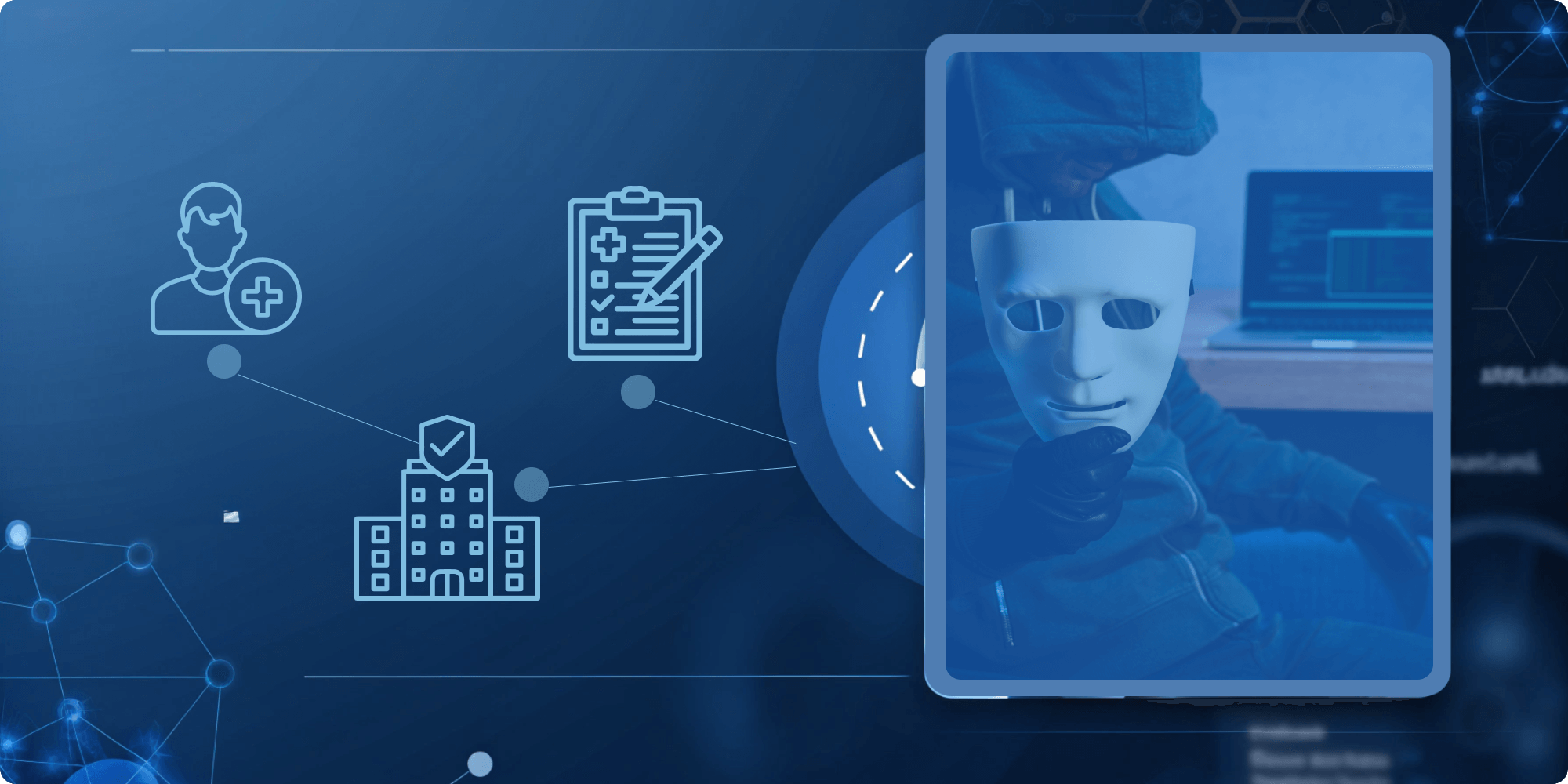
Identity theft in healthcare involves unauthorized access and use of personal health information (PHI) and personally identifiable information (PII) to obtain medical services, goods, or financial benefits. Criminals may use stolen identities to procure prescription drugs, submit false insurance claims, or access medical treatments under another person’s name. This type of fraud is often more damaging than financial identity theft due to the sensitive nature of health records and the potential for long-term repercussions.
Medical identity theft can manifest in several ways:
- Fraudulent Medical Billing: Criminals use stolen medical identifiers to submit false claims to insurance providers for services, equipment, or prescriptions that were never rendered.
- Identity Theft for Medical Services: Perpetrators may use stolen identities to gain access to medical services or prescription drugs, often leading to dangerous situations where the victim’s medical history is inaccurately represented.
- Exceeding Benefit Limits: Identity thieves may exploit stolen personal information to access and deplete a victim’s healthcare benefits.
- Suspicious Activity and Alerts: Receiving bills or notices for medical services you haven’t received is a clear red flag. Additionally, alerts from credit monitoring services or healthcare providers about potential breaches should be promptly addressed to prevent further issues.
Who Does It Affect?
Medical identity theft has far-reaching consequences, impacting various stakeholders in the healthcare ecosystem:
Patients

- Financial Burden: Victims of medical identity theft often face significant financial stress. They may receive bills for services they never received, leading to disputes with healthcare providers and insurance companies.
- Health Risks: Inaccurate medical records resulting from identity theft can lead to inappropriate treatments, incorrect diagnoses, and adverse drug interactions. This can severely compromise patient safety and well-being.
- Emotional Distress: Dealing with the aftermath of identity theft, including correcting medical records and resolving billing issues, can be overwhelming and emotionally taxing for patients.
Healthcare Providers
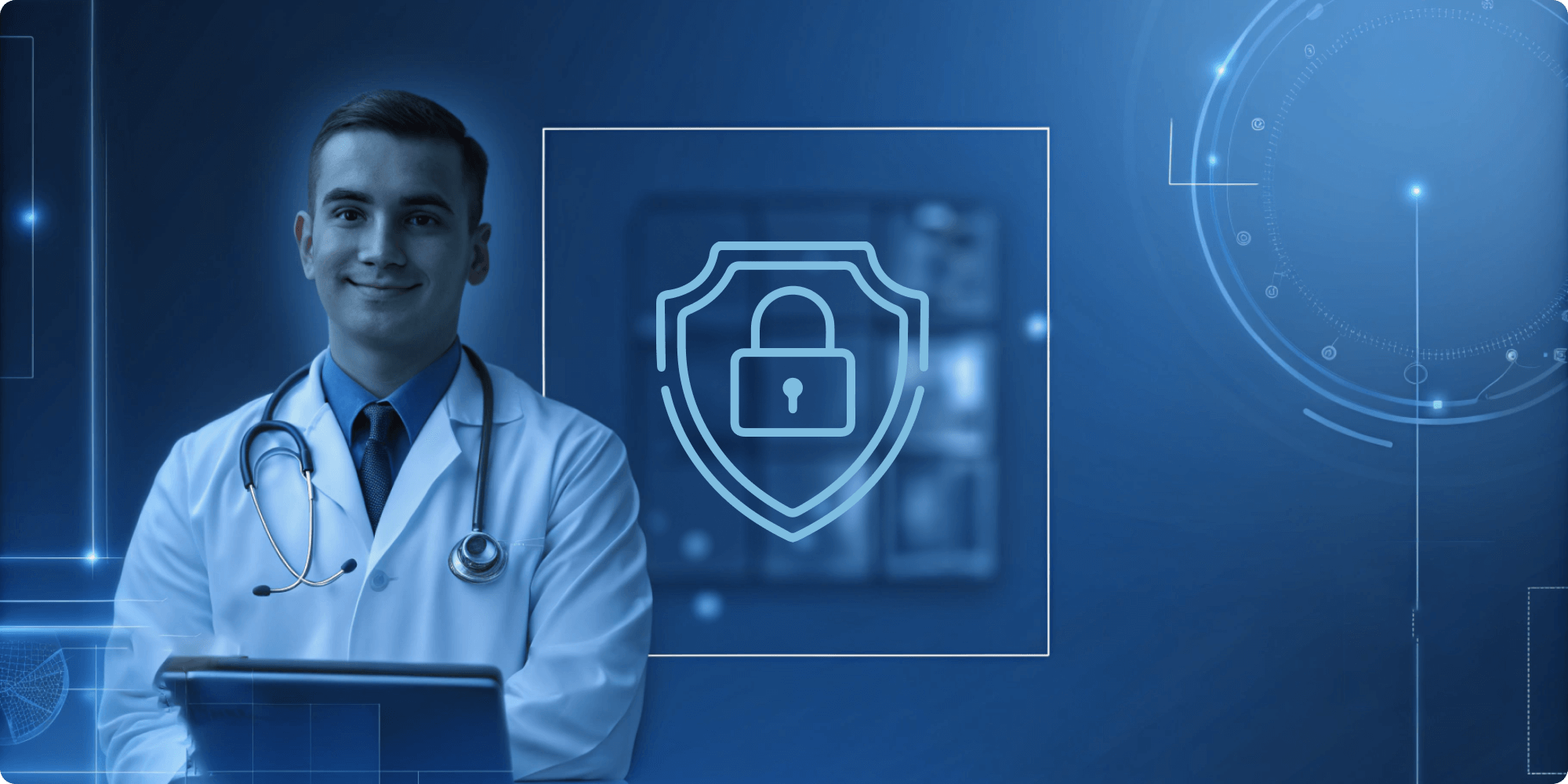
- Reputational Damage: Your reputation is on the line when patients perceive that their information isn’t safe in your hands. Trust is hard-earned and easily lost, and a single incident of identity theft can lead to a significant loss of business and public trust.
- Financial Losses: You may face substantial financial losses due to fraudulent claims, increased administrative costs to resolve issues, and potential fines for failing to protect patient data. These financial strains can divert resources away from patient care and other critical functions.
- Administrative Challenges: Handling cases of medical identity theft requires significant time and resources. You’ll need to investigate fraudulent claims, correct medical records, and implement stronger security measures. This administrative burden can detract from your primary focus of providing excellent patient care.
Insurance Companies

- Fraudulent Claims: Insurers bear the brunt of financial losses from fraudulent claims submitted using stolen identities. These claims can be challenging to detect and verify, leading to increased payout costs.
- Increased Premiums: The financial impact of medical identity theft often results in higher premiums for all policyholders. To cover the losses from fraudulent claims, insurers may raise premiums, impacting the overall cost of healthcare.
Understanding the impact of medical identity theft underscores the importance of implementing robust security measures to prevent such theft and protect all stakeholders involved.
For financial institutions, this means seamless compliance with regulatory standards and a reduced risk of data breaches. For other industries, such as online dating platforms or gaming/gambling, it ensures the highest levels of privacy and security for your users. At Trust Stamp, we’re not just meeting industry standards—we’re exceeding them, so you can trust us with your most sensitive information.
Risks to HIPAA Compliance
Medical identity theft not only impacts patients and providers but also poses significant risks to HIPAA compliance. As a healthcare provider, understanding these risks is crucial for safeguarding your practice and maintaining regulatory standards:
Unauthorized Access to Protected Health Information (PHI)
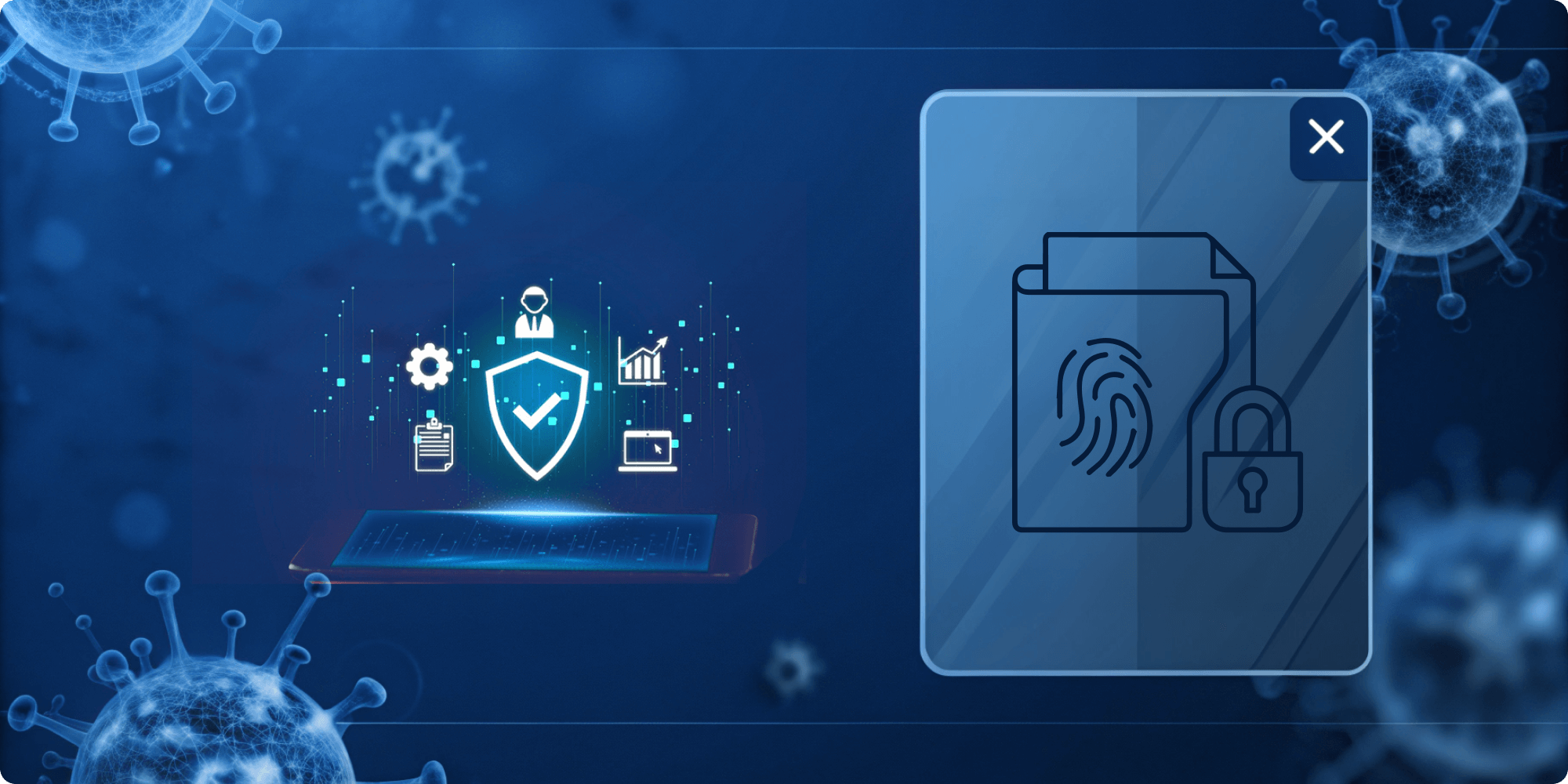
When identity thieves obtain patient information, they can exploit it for various fraudulent activities, compromising the confidentiality, integrity, and availability of PHI. This unauthorized access violates HIPAA regulations, exposing your practice to potential fines and legal action. Ensuring robust security measures to protect against unauthorized access is essential to maintaining compliance and protecting patient trust.
Data Breaches

Data breaches are a major risk associated with medical identity theft. A breach can occur when sensitive patient information is exposed, either through hacking, unauthorized access, or even internal mishandling. The consequences of a data breach are severe, including legal repercussions, financial penalties, and damage to your reputation. Under HIPAA, you are required to report breaches, notify affected patients, and take corrective actions, all of which can be costly and time-consuming.
Inaccurate Patient Records
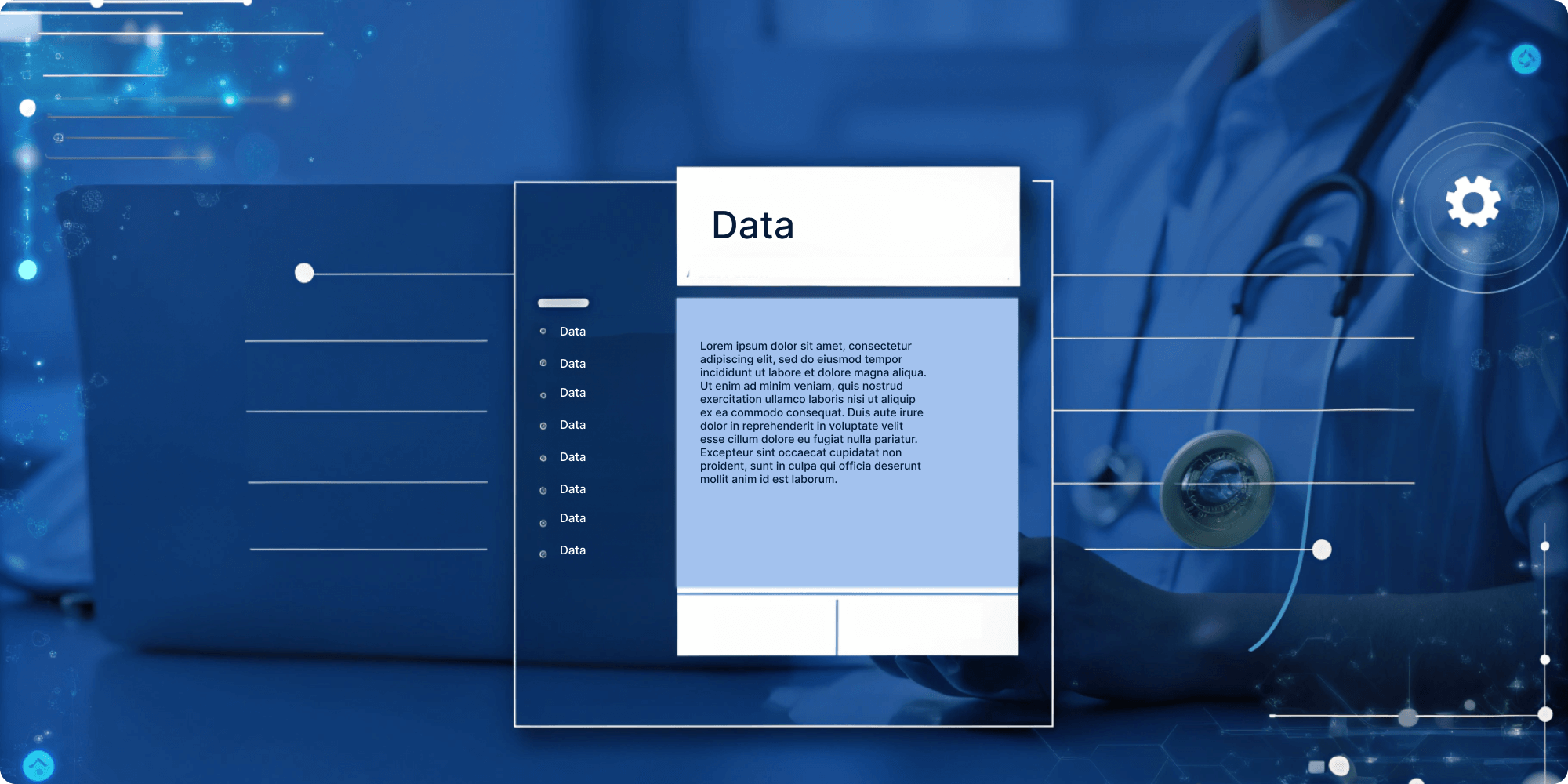
Identity theft can lead to inaccurate patient records, which in turn can impact the quality of care you provide. When fraudulent information enters a patient’s medical records, it can result in incorrect diagnoses, inappropriate treatments, and potential harm to the patient. Maintaining accurate patient records is not only a matter of quality care but also a compliance requirement under HIPAA.
Compliance Obligations
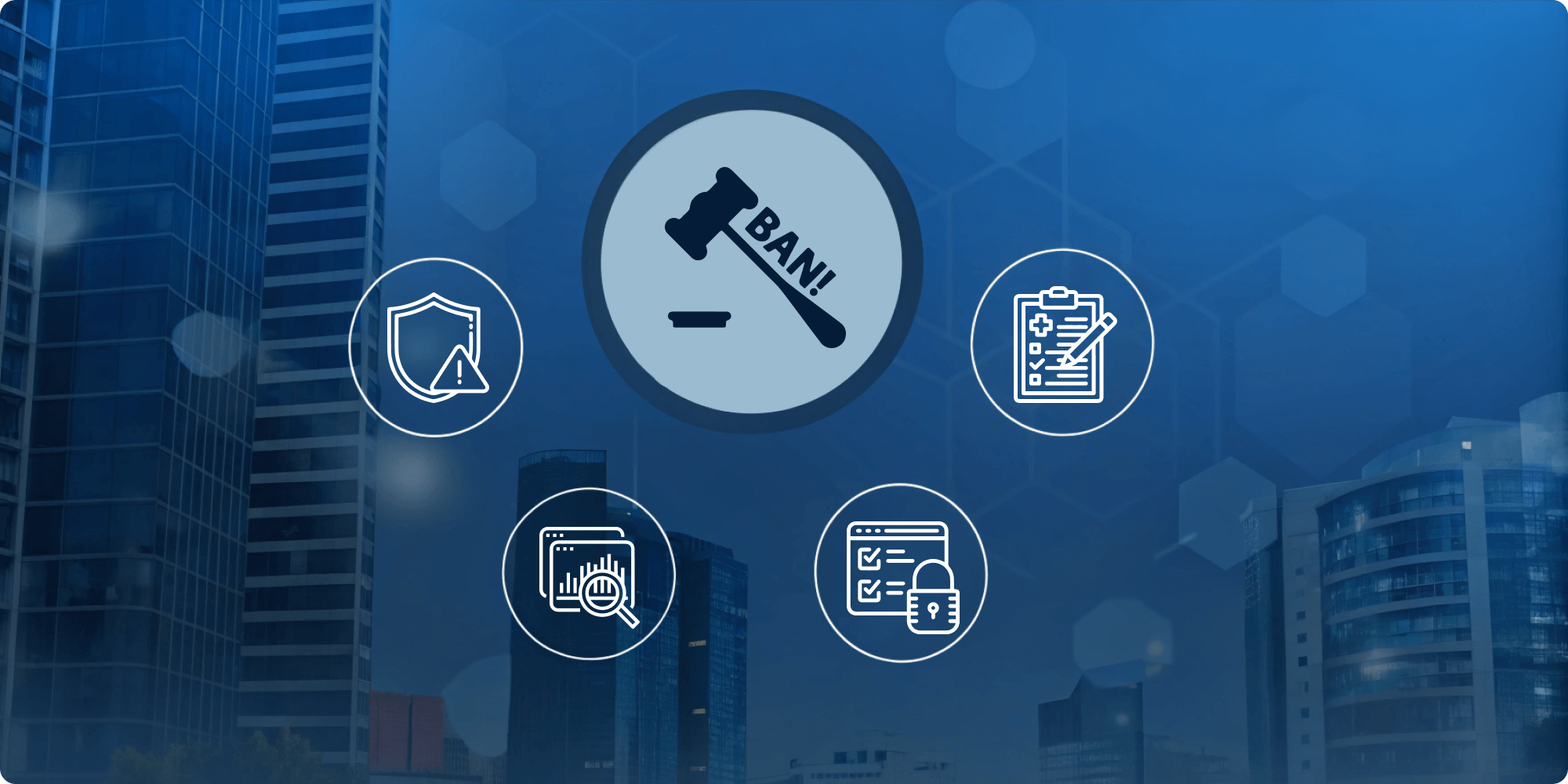
HIPAA requires you to implement safeguards to protect patient information, conduct regular risk assessments, and ensure that your staff is trained on privacy and security practices. The evolving nature of identity theft means that you must continually update and strengthen your security measures to stay compliant. Failure to meet these obligations can result in hefty fines, legal action, and loss of patient trust.
How Healthcare Providers Can Protect Against Identity Theft
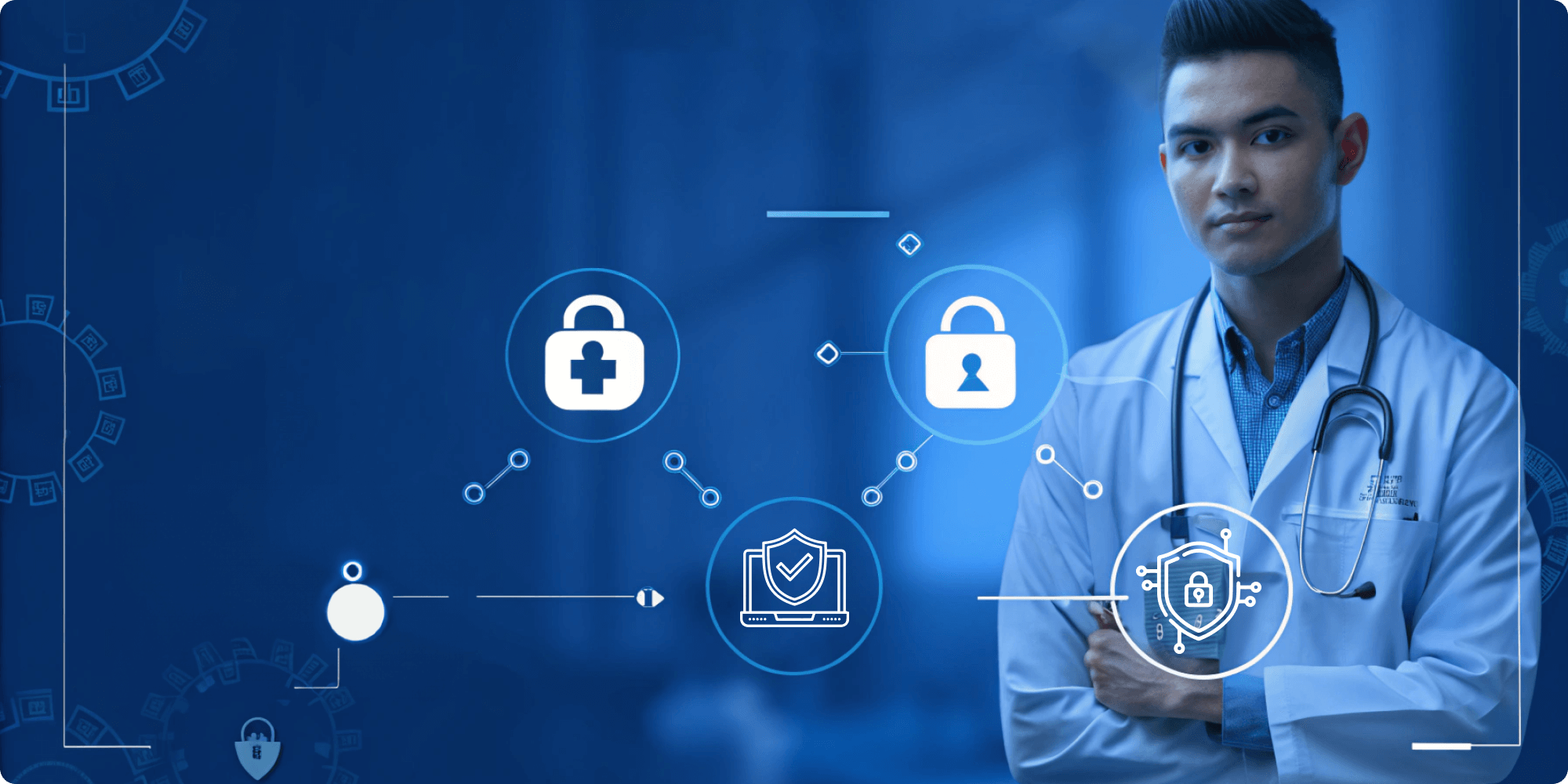
- Robust Identity Verification Processes: Utilize robust multifactor authentication – knowledge-based (e.g. passwords), possession-based (security tokens or devices), and inherence-based (biometric) authentication factors to ensure comprehensive security.
- Employee Training: Regular training sessions can help employees identify red flags, such as suspicious activity or discrepancies in patient information, and understand the proper protocols for reporting and addressing potential threats.
- Technology Solutions: Leverage advanced technologies to help verify identities more accurately and prevent fraud.
How Trust Stamp Protects Against Medical Identity Theft

Trust Stamp provides innovative solutions designed to bridge the gaps in traditional security measures, offering robust protection for healthcare providers and their patients. Our privacy-first approach ensures user identities are authenticated without storing any biometric information, thus safeguarding privacy while enhancing security.
- Facial Biometric Authentication: Our technology uses a selfie to verify user identities, ensuring the actual user behind the device matches the patient. The process includes liveness checks and biometric comparisons, confirming the user is physically present and not using a static image or video to spoof the system. This method ensures that the individual in your system is the same as the user being verified.
- Biometric Watchlist: When a face is deemed untrustworthy, we create a unique biometric token—an anonymized digital representation of the person’s facial features—and add it to your biometric watchlist. This ensures your system is alerted whenever that face reappears, preventing repeat offenders from creating new accounts. This proactive measure significantly enhances overall security by blocking access to known bad actors, thereby protecting the integrity of your platform.
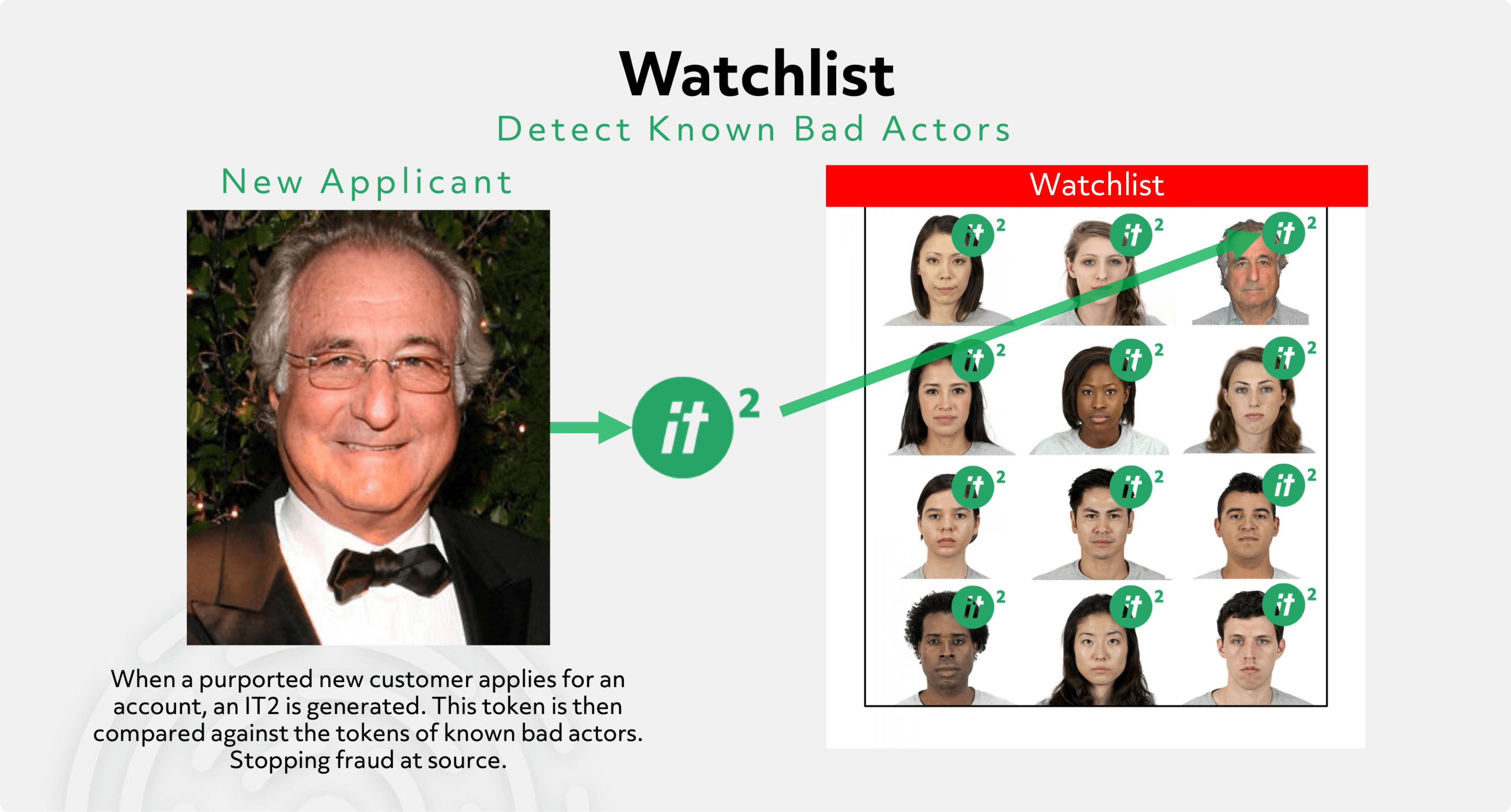
By using facial biometric authentication and biometric watchlists, Trust Stamp helps healthcare providers ensure that only verified individuals can access medical services and submit claims, reducing the risk of fraudulent billing. Our biometric watchlist also prevents identity thieves from repeatedly using stolen identities to create false records, as any reappearance of flagged individuals is immediately detected and blocked. Additionally, Trust Stamp’s unique multifactor authentication ensures that only legitimate users can access benefits, preventing identity thieves from depleting a victim’s healthcare benefits and impacting their coverage. The biometric watchlist provides real-time alerts whenever a flagged individual attempts to access your system, allowing you to take immediate action and prevent unauthorized activities.
Frictionless Integration
Trust Stamp’s solutions can be easily integrated into your healthcare system to enhance existing security measures, adding an extra layer of protection without disrupting the patient experience and allowing your staff to focus on providing excellent patient care while maintaining high-security standards.:
- Patient Onboarding: Verify patient identities during registration to prevent unauthorized access to medical services and records.
- Access Control: Securely manage access to sensitive patient information by requiring facial biometric authentication for healthcare providers and administrative staff. Integrate this into patient portals, electronic health record systems, and other platforms to verify identities securely and efficiently.
By adopting advanced identity verification solutions, you can significantly reduce the risk of medical identity theft, protect patient data, and maintain compliance with regulatory requirements, ultimately making your practice more secure and efficient.
Contact us today to learn more!

